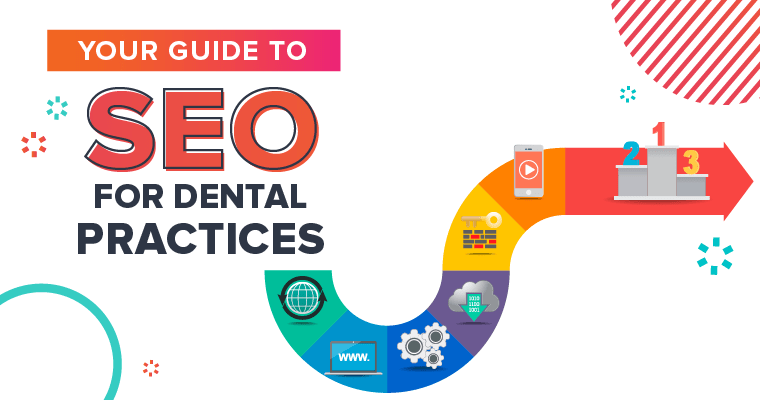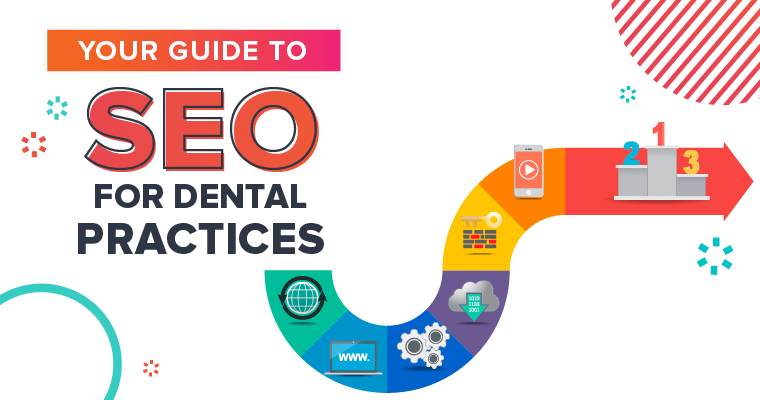Have you been searching for ways to enhance your online visibility as a dental practice? Look no further! In this article, we will explore the power of SEO (Search Engine Optimization) and how it can benefit dental practices like yours. By targeting dentists and orthodontists who are in need of an SEO agency, you can effectively increase your online presence. And what’s even better, if you’re located in Philadelphia, mention it to attract local businesses. So, let’s dive into the world of SEO for dental practices and discover the potential it holds for your business!

1. Understanding the Importance of Online Visibility for Dental Practices
In today’s digital age, an online presence is crucial for any business, and dental practices are no exception. With the shift to online search becoming increasingly prevalent, it is essential for dental practices to understand the importance of online visibility. This article will explore the benefits of search engine optimization (SEO) for dental practices and highlight key elements of an effective SEO strategy.
1.1 The Shift to Online Search
Gone are the days when people relied solely on recommendations from friends or flipping through the yellow pages to find a dentist. Nowadays, the majority of people turn to online search engines like Google to find local businesses, including dental practices. Whether it’s for routine check-ups, emergency dental care, or cosmetic procedures, potential patients are more likely to search online before making a decision. Therefore, it is crucial for dental practices to have a strong online presence to capture the attention of these potential patients.
1.2 The Benefits of SEO for Dental Practices
Search engine optimization (SEO) is the process of improving a website’s visibility and ranking in search engine results pages (SERPs). Implementing an effective SEO strategy can benefit dental practices in numerous ways. Firstly, SEO helps to increase organic traffic to a dental practice’s website, which means more potential patients discovering and visiting the site. Secondly, by targeting specific keywords relevant to dental services, SEO can attract highly qualified leads who are actively searching for dental care. Lastly, higher visibility and better rankings in search results establish credibility and trustworthiness, boosting the reputation of dental practices.
2. Key Elements of an Effective SEO Strategy for Dental Practices
Now that you understand the importance of online visibility for dental practices, let’s dive into the key elements of an effective SEO strategy that can help you optimize your digital presence.
2.1 Keyword Research and Optimization
Keyword research is the foundation of any successful SEO strategy. It involves identifying the search terms that potential patients are using to find dental services online. By researching and optimizing for these keywords, dental practices can increase their chances of appearing in relevant search results. It’s important to choose keywords that are relevant to the services you offer and have a decent search volume. Tools like Google Keyword Planner and SEMrush can help in identifying and prioritizing these keywords.
2.2 On-Page SEO Techniques
On-page SEO refers to the optimization of various elements on a website to improve its visibility in search results. This includes optimizing page titles, meta descriptions, and header tags using targeted keywords. Incorporating relevant keywords into the content and ensuring it is user-friendly and engaging also contribute to on-page SEO. Additionally, optimizing images, URLs, and internal links can further enhance a dental practice’s online visibility.
2.3 Off-Page SEO Tactics
While on-page SEO focuses on optimizing elements within a dental practice’s website, off-page SEO includes strategies implemented outside of the website to improve its visibility. One crucial off-page SEO tactic is link building, which involves acquiring high-quality backlinks from reputable websites. These backlinks act as endorsements, signaling to search engines that a dental practice’s website is trustworthy and authoritative. Other off-page tactics include social media marketing and online reputation management, which we will explore in more detail later in this article.
2.4 Local SEO for Dental Practices
Local SEO is particularly important for dental practices, as most patients prefer to find a dentist nearby. Optimizing for local search involves establishing a strong presence on Google My Business, creating accurate and consistent listings on local directories, and actively encouraging positive reviews from local patients. By implementing local SEO strategies, dental practices can increase their visibility for potential patients in their target area.

3. Choosing the Right SEO Keywords for Your Dental Practice
Now that we understand the key elements of an effective SEO strategy, it’s important to choose the right keywords for your dental practice. Selecting relevant keywords plays a crucial role in optimizing your website and attracting qualified leads.
3.1 Identifying Relevant Keywords
To identify relevant keywords for your dental practice, put yourself in the shoes of potential patients. Consider the services you offer, the location of your practice, and the specific needs and concerns of your target audience. Researching keywords related to dental treatments, oral hygiene, and location-specific terms can help you identify the most relevant keywords for your practice.
3.2 Long-Tail vs. Short-Tail Keywords
When choosing keywords, it’s important to consider the difference between long-tail and short-tail keywords. Short-tail keywords are more general and competitive, such as “dentist” or “dental practice.” Long-tail keywords, on the other hand, are more specific and usually longer phrases, such as “emergency dentist in Philadelphia” or “teeth whitening services near me.” While short-tail keywords attract more search volume, long-tail keywords often have higher conversion rates due to their specificity.
3.3 Tools for Keyword Research
Several tools can assist you in keyword research. Google Keyword Planner is a free tool that provides insights into search volume and competition for specific keywords. SEMrush and Ahrefs are paid tools that offer more in-depth keyword analysis, competitive research, and other SEO insights. Utilizing these keyword research tools can help you prioritize and optimize your chosen keywords.
4. Implementing On-Page SEO Techniques for Dental Websites
After selecting the right keywords, it’s time to implement on-page SEO techniques to optimize your dental website for search engines.
4.1 Optimizing Page Titles and Meta Descriptions
Page titles and meta descriptions are essential elements of on-page SEO. By including targeted keywords in page titles and meta descriptions, you are signaling to search engines what your page is about. This not only improves your chances of appearing in relevant search results but also increases the likelihood of users clicking through to your website.
4.2 Creating High-Quality and Engaging Content
Content plays a crucial role in on-page SEO. By creating high-quality and engaging content that incorporates targeted keywords naturally, dental practices can attract and retain visitors to their website. Content can include blog posts, informative articles, videos, and more. It’s important to provide valuable information that educates and answers common questions, positioning yourself as a trusted authority in the dental industry.
4.3 Optimizing Images and Multimedia Elements
Optimizing images and multimedia elements on your website can improve user experience and enhance your website’s SEO. Ensure that your images are compressed and properly formatted to minimize loading times. Add alt tags that describe the content of the image using targeted keywords. Additionally, consider optimizing any multimedia elements, such as videos or interactive tools, to improve their visibility in search results.
4.4 Enhancing Website Speed and Mobile Responsiveness
Website speed and mobile responsiveness are crucial for both user experience and SEO. Slow-loading websites can lead to high bounce rates, as users are less likely to wait for a website to load. Additionally, search engines prioritize mobile-friendly websites in their search results, as the majority of online searches are now conducted on mobile devices. Optimizing your website’s speed and ensuring it is mobile-friendly can significantly improve its visibility and rankings in search results.

5. Utilizing Off-Page SEO Tactics to Boost Dental Practice Visibility
Effective off-page SEO tactics can further enhance the visibility of dental practices in online search results. Let’s explore some key strategies that can help boost your practice’s visibility.
5.1 Building High-Quality Backlinks
Building high-quality backlinks from reputable websites is an important off-page SEO technique. Search engines see backlinks as endorsements of a website’s trustworthiness and authority. The more quality backlinks a dental practice has, the more likely it is to rank higher in search results. Engage in outreach efforts to establish connections with relevant industry websites, collaborate with local influencers, and provide guest posts or expert contributions to other authoritative websites.
5.2 Social Media Marketing for Dental Practices
Social media marketing has become increasingly important in boosting online visibility. By creating and maintaining active social media profiles, dental practices can engage with their target audience, share valuable content, and direct traffic to their website. Social media platforms like Facebook, Twitter, and Instagram can be used to promote dental services, share patient testimonials, and educate followers about oral health. Engaging with your audience on social media can help generate brand awareness and attract potential patients.
5.3 Online Reputation Management
Online reputation management involves monitoring and managing a dental practice’s online reviews and reputation. Positive reviews not only generate trust among potential patients but also contribute to the visibility and rankings of a dental practice in search results. Encourage satisfied patients to leave reviews on platforms like Google My Business, Yelp, and Healthgrades. Responding promptly and professionally to both positive and negative reviews demonstrates your commitment to patient satisfaction, further enhancing your online reputation.
6. Enhancing Local SEO for Dental Practices
As previously mentioned, local SEO is crucial for dental practices, as most patients prefer to find a nearby dentist. Here are key strategies to enhance local SEO for your dental practice.
6.1 Optimizing Google My Business Listings
Google My Business (GMB) is a powerful tool that allows dental practices to manage their online presence on Google. Creating or claiming your GMB listing is the first step in optimizing local SEO. Ensure that your GMB profile is complete and accurate, including your practice’s name, address, phone number, and website URL. Add photos, respond to patient reviews, and publish updates regularly to enhance your GMB listing and increase your visibility in local search results.
6.2 Local Directory Listings
Claiming and optimizing listings on local directories like Yelp, Healthgrades, and Yellow Pages can further boost your local SEO efforts. Ensure that your practice’s information is consistent across all directories, including name, address, phone number, and website URL. Encourage satisfied patients to leave reviews on these directories, as positive reviews can greatly impact your ranking in local search results.
6.3 Getting Positive Reviews from Local Patients
Positive reviews from local patients are crucial for your dental practice’s visibility and reputation. Actively encourage satisfied patients to leave reviews on platforms like Google My Business, Yelp, and other local directories. Consider offering incentives such as discounts or small giveaways to motivate patients to share their positive experiences. Responding promptly and gratefully to those reviews demonstrates your appreciation for patient feedback and builds trust within the local community.

7. Measuring and Tracking SEO Success for Dental Practices
To ensure the effectiveness of your SEO efforts, it’s important to measure and track your progress. Here are some key methods for measuring and tracking SEO success for dental practices.
7.1 Setting Goals and Key Performance Indicators (KPIs)
Setting goals and key performance indicators (KPIs) is essential for tracking the success of your SEO strategy. Determine what you hope to achieve with your SEO efforts, such as increasing website traffic, generating leads, or improving keyword rankings. By establishing specific, measurable goals, you can track your progress and make adjustments to your strategy as needed.
7.2 Utilizing Google Analytics
Google Analytics is a powerful tool that provides valuable insights into website traffic and user behavior. By installing Google Analytics on your dental practice’s website, you can track important metrics such as the number of visitors, their demographics, and the sources of their traffic. Analyzing this data can help you understand the effectiveness of your SEO strategy and identify areas for improvement.
7.3 Tracking Keyword Rankings
Tracking keyword rankings is crucial for determining the success of your SEO efforts. Monitor the rankings of your chosen keywords using tools like SEMrush or Ahrefs. By regularly checking your keyword rankings, you can gauge the impact of your optimization efforts and adjust your strategy accordingly. Keep in mind that rankings can fluctuate over time, so it’s important to track trends and focus on long-term improvements.
8. Considering the Role of Dental-Specific SEO Agencies
While it’s possible to implement SEO strategies on your own, dental-specific SEO agencies can offer specialized knowledge and expertise to help you achieve optimal results. Here’s why considering the role of a dental-specific SEO agency can benefit your practice.
8.1 The Importance of Industry Knowledge
Dental-specific SEO agencies understand the unique challenges and requirements of dental practices in the digital space. They have specialized knowledge of dental industry trends, local search algorithms, and patient behavior, allowing them to develop customized SEO strategies tailored to your specific needs. By partnering with a dental-specific SEO agency, you can leverage their expertise to enhance your online visibility and attract more qualified patients.
8.2 Ortho Advertising: A Leading SEO Agency for Dental Practices in Philadelphia
Ortho Advertising is a top-tier SEO agency located in Philadelphia that specializes in serving dental practices and orthodontists. With their in-depth knowledge of the dental industry and local market, Ortho Advertising can help you optimize your online visibility and attract more patients to your dental practice. Their tailored SEO strategies and comprehensive services make them a trusted partner in maximizing your dental practice’s potential in the digital landscape.

9. Overcoming Common SEO Challenges for Dental Practices
While SEO can greatly benefit dental practices, it is not without its challenges. Here are some common SEO challenges faced by dental practices and strategies to overcome them.
9.1 Competition in the Dental Industry
The dental industry is highly competitive, with numerous practices vying for visibility in search results. To overcome this challenge, it’s crucial to focus on targeted keywords, relevant content, and specialized SEO tactics. Identifying unique selling propositions and leveraging them in your SEO strategy can help set your dental practice apart from competitors.
9.2 Adapting to Algorithm Updates
Search engine algorithms are constantly evolving, and what works for SEO today may not work tomorrow. Staying updated with algorithm changes and adapting your SEO strategy accordingly is essential. Keep a close eye on industry news, follow reputable SEO resources, and partner with dental-specific SEO agencies that can guide you through algorithm updates and help you adjust your strategy accordingly.
9.3 Managing Online Reviews and Reputational Issues
Online reviews and reputational issues can greatly impact a dental practice’s visibility and credibility. Negative reviews or reputational issues need to be addressed promptly and professionally. Responding to negative reviews with empathy and a willingness to resolve issues demonstrates your commitment to patient satisfaction. Continually encouraging positive reviews from satisfied patients can help counterbalance any negative feedback and enhance your online reputation.
10. Best Practices for SEO-Friendly Dental Practice Websites
To wrap up this comprehensive article, let’s highlight some best practices for creating SEO-friendly dental practice websites.
10.1 Responsive and User-Friendly Design
Ensure that your dental practice’s website is responsive and user-friendly across various devices, including desktop and mobile. A visually appealing and easy-to-navigate website can greatly improve user experience and encourage visitors to explore your services further.
10.2 Engaging and Educational Content
Create engaging and educational content that answers commonly asked questions and provides valuable information to your target audience. Incorporate targeted keywords naturally throughout your content to improve its relevance for search engines. Regularly update your website with fresh content to maintain relevance and encourage return visitors.
10.3 Regular Website Updates and Maintenance
Regularly update and maintain your dental practice’s website to ensure optimal performance and security. This includes updating plugins and themes, fixing broken links, and improving website speed. By keeping your website up to date, you can provide a seamless user experience and enhance your SEO efforts.
In conclusion, online visibility is crucial for dental practices in today’s digital landscape. Implementing a comprehensive SEO strategy can significantly enhance your practice’s visibility, attract more qualified patients, and establish credibility in the dental industry. By understanding the key elements of SEO, selecting the right keywords, and implementing on-page and off-page SEO techniques, dental practices can optimize their online presence and thrive in the competitive digital world.

